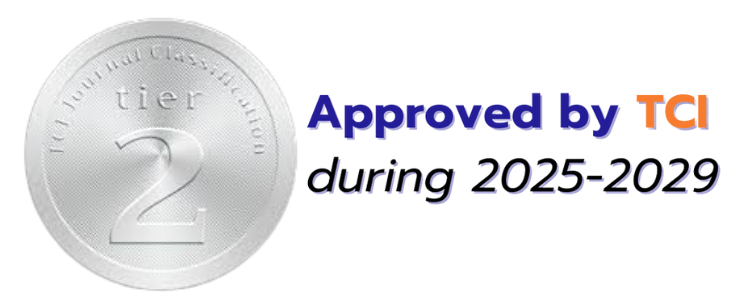การพัฒนาความสามารถการคิดวิเคราะห์ รายวิชาสุขศึกษา เรื่องพฤติกรรมเสี่ยงต่อสุขภาพ ด้วยวิธีการสอนโดยเกม ROV ของนักเรียนชั้นมัธยมศึกษาปีที่ 2 |Development of analytical thinking in health education subjects on health-risk behaviors by ROV games
teaching methods of Mathayom Suksa 2 students
คำสำคัญ:
การคิดวิเคราะห์, พฤติกรรมเสี่ยงต่อสุขภาพ, วิธีการสอน, เกม ROV, Analytical thinking, Health-risk behaviors, Teaching methods, ROV gamesบทคัดย่อ
การวิจัยครั้งนี้มีวัตถุประสงค์หลักเพื่อพัฒนาความสามารถการคิดวิเคราะห์ในรายวิชาสุขศึกษา เรื่อง พฤติกรรมเสี่ยงต่อสุขภาพ ด้วยวิธีการสอนโดยเกม ROV กลุ่มตัวอย่าง คือ นักเรียนชั้นมัธยมศึกษาปีที่ 2 โรงเรียนบางเลนวิทยา จำนวน 60 คน ประกอบด้วยนักเรียน 2 ห้องๆละ 30 คน ซึ่งได้มาจากการสุ่มแบบกลุ่ม แบ่งเป็นกลุ่มทดลองที่ได้รับการจัดการเรียนรู้ด้วยวิธีการสอนโดยเกม ROV จำนวน 30 คน และกลุ่มควบคุมที่ได้รับการจัดการเรียนรู้ด้วยวิธีการสอนแบบปกติ จำนวน 30 คน เครื่องมือที่ใช้ในการวิจัย ได้แก่ 1) แผนการจัดการเรียนรู้ด้วยวิธีการสอนโดยเกม ROV 2) แผนการจัดการเรียนรู้ด้วยวิธีการสอนแบบปกติ 3) แบบทดสอบวัดผลสัมฤทธิ์ทางการเรียนด้านการคิดวิเคราะห์ 4) แบบสอบถามความพึงพอใจของนักเรียนต่อการจัดการเรียนรู้ด้วยวิธีการสอนโดยเกม ROV สถิตที่ใช้ในการวิเคราะห์ข้อมูล คือ ร้อยละ ค่าประสิทธิภาพ E1,E2 ค่าเฉลี่ย ส่วนเบี่ยงเบนมาตรฐาน และการทดสอบที
ผลการวิจัยปรากฏว่า
- ความสามารถในการคิดวิเคราะห์ เรื่อง พฤติกรรมเสี่ยงต่อสุขภาพ ด้วยวิธีการสอนโดยเกม ROV สำหรับนักเรียนชั้นมัธยมศึกษาปีที่ 2 หลังเรียนสูงกว่าก่อนเรียนอย่างมีนัยสำคัญที่ระดับ .05
- ความสามารถในการคิดวิเคราะห์ของนักเรียนหลังเรียน เรื่องพฤติกรรมเสี่ยงต่อสุขภาพ ด้วยวิธีการสอนโดยเกม ROV สูงกว่าหลังเรียนด้วยวิธีการสอนแบบปกติอย่างมีนัยสำคัญที่ระดับ .05
- แผนการจัดการเรียนรู้รายวิชาสุขศึกษา เรื่อง พฤติกรรมเสี่ยงต่อสุขภาพ ด้วยวิธีการสอนโดยเกม ROV สำหรับนักเรียนชั้นมัธยมศึกษาปีที่ 2 มีประสิทธิภาพตามเกณฑ์ 80.17/80.33
4. ความพึงพอใจของนักเรียนที่มีต่อการจัดการเรียนรู้เพื่อพัฒนาความสามารถการคิดวิเคราะห์ด้วยวิธีการสอนโดยเกม ROV เรื่องพฤติกรรมเสี่ยงต่อสุขภาพ อยู่ในระดับมาก
The main objective of this research was to develop analytical thinking abilities in health education subjects on health-risk behaviors by ROV game teaching methods The sample group consisted of 60 Mathayom Suksa 2 students, Bang Len Wittaya School, consisted of 2 classrooms which were derived from cluster sampling, and divided into 2 groups: 30 students in the experimental group who received learning management by ROV game teaching methods and 30 control group students who received learning management by conventional teaching methods. The tools used in the research were 1) learning management plan by ROV games teaching methods 2) learning management plans with normal teaching methods 3) achievement tests for analytical thinking 4) Student satisfaction questionnaire for learning management by ROV game teaching methods. Statistics employed for data analysis were the percentage, E1, E2 efficiency index, Mean, Standard deviation, and T-test.
The results of the research were as follows:
- After learning, analytical ability in health education course on health-risk behaviors by ROV games teaching methods for Mathayom Suksa 2 students, significantly higher than before learning at the level of .05
- After learning, analytical thinking ability in health education courses on health-risk behaviors of students by ROV games teaching methods significantly higher than the analytical ability of students by using conventional teaching methods at the level of .05
- The learning plan of health education courses on health-risk behaviors by ROV games teaching methods for grade 2 students met the set efficiency criteria of 80.17 / 80.33
- Students' satisfaction on learning management in develop analytical thinking ability by ROV games teaching methods on health-risk behaviors at a high level.







